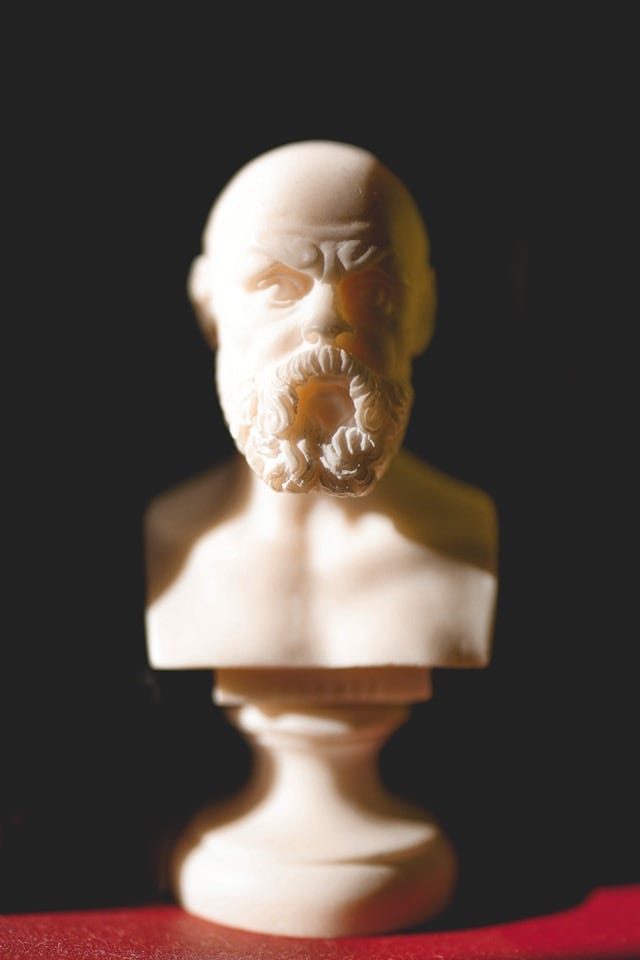Living Socratically: Questioning What You Think You Know

What the Socratic Method Is
The Socratic method, named after the Athenian philosopher Socrates, is not a doctrine but a way of inquiry. Socrates would not lecture; he would ask. His questions peeled back layers of assumption until his companions discovered either a deeper truth or the recognition that they did not know what they thought they knew.
At its core, the method is simple:
Ask clarifying questions (“What do you mean by that?”)
Test for consistency (“How does that square with what you just said?”)
Look for evidence (“What makes you certain this is true?”)
Pursue implications (“If this is true, what follows from it?”)
Acknowledge ignorance when it is uncovered (“I do not know”).
Socrates called himself a “midwife of ideas.” His goal was not to give birth to knowledge for others, but to help others bring their own assumptions to light.
Living Socratically in Daily Life
We usually reserve the Socratic method for classrooms or philosophical debates. But imagine applying it to everything—to your beliefs, values, emotions, and behaviours.
Beliefs: When you think, “I’m just not good at this,” ask: What do I mean by “good”? Compared to whom? On what basis? What evidence actually supports this?
Values: If you claim to value honesty, test it: Do you practice honesty even when it costs you? Or only when convenient? What is your true hierarchy of values?
Emotions: When anger arises, ask: Why am I angry? What belief underlies this reaction? Is it that I believe I deserve different treatment? Is that belief sound?
Behaviours: When you act out of habit—scrolling, snacking, gossiping—ask: What purpose does this serve? Is it aligned with what I say I want from life?
This is not an exercise in relentless self-criticism but in radical clarity. The point is not to paralyse yourself with questions but to live awake, to resist drifting on autopilot.
The Practice
To live Socratically is to:
Question before accepting. Do not take your first thought as your best thought.
Welcome discomfort. A belief that cannot withstand examination may not be worth holding.
Use dialogue—even with yourself. Write questions in a journal, or pose them aloud.
End with humility. Like Socrates, accept that not-knowing can be the beginning of wisdom.
When applied daily, the Socratic method is not just a tool of philosophy—it is a discipline of the soul. Each question chisels away at illusion, leaving behind something more solid, more true, more worthy of guiding a life.
Example
Initial thought:
“I feel down due to the physiotherapist cancelling today and missing out on social interaction and physical exercise.”
Step 1 – Clarify the claim
What do I mean by “feeling down”? Is it sadness, disappointment, loneliness, frustration?
Am I certain the cause is only the cancellation, or could other factors be amplifying it (fatigue, expectations, stress)?
Step 2 – Test the belief
Is it true that I must feel down when an appointment is cancelled?
Have I ever missed a session before and coped differently?
Is the loss permanent, or just temporary?
Step 3 – Examine assumptions
Am I assuming that this was my only chance for exercise or social interaction today?
Do I believe my well-being hinges on this one event?
What value is being touched here—health, routine, connection?
Step 4 – Explore implications
If I continue to believe that one cancellation “ruins my day,” what follows?
If instead I view it as an inconvenience, what follows?
What opportunity might open if I reframe the time?
Step 5 – Acknowledge ignorance and redirect
I can admit: “I don’t fully know why this hit me harder today than other times.” That humility gives me space.
Then I can ask: “What is still within my power?”
Practical Reframe:
Social interaction → Could I call a friend, send a message, or chat briefly with someone else today?
Physical exercise → Could I stretch, walk, or follow a short routine at home instead?
Emotion → Rather than denying feeling down, I can acknowledge it, then question whether it must govern the whole day.
So the Socratic path here takes you from:
“I feel down because of X” → to → “What do I mean by down? What am I assuming? Is this the only path? What’s still in my control?”
That questioning doesn’t erase the disappointment, but it weakens its grip and replaces passive reaction with active choice.
Here’s a distilled business-card version of the Socratic method — small, sharp, and ready for pocket use:
The Socratic Method – Quick Guide
Clarify → What do I mean by this?
Test → Is it true? What evidence supports it?
Probe → What assumptions am I making?
Check → Is it consistent with my other beliefs/values?
Trace → What follows if this is true?
Admit → What do I not know?
Redirect → What is still within my power?
Reader Question:
What is one belief, emotion, or habit you carry that you’ve never really questioned — and what would happen if you examined it Socratically?
Tip / Donation/ Appreciation
We are all living in a cost-of-living crisis, and I find Substack’s paid scheme too much of a hassle. If you feel inclined to throw cash appreciatiojn my way, you can buy me a block of chocolate through my Kofi link here.

